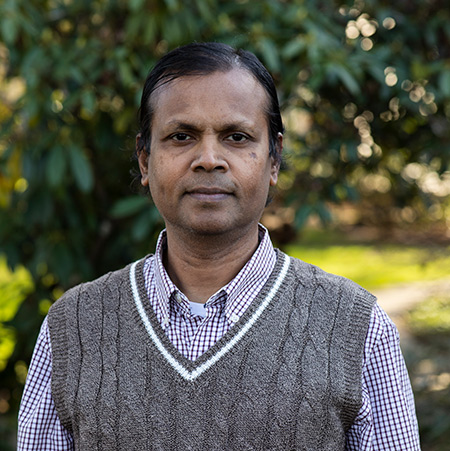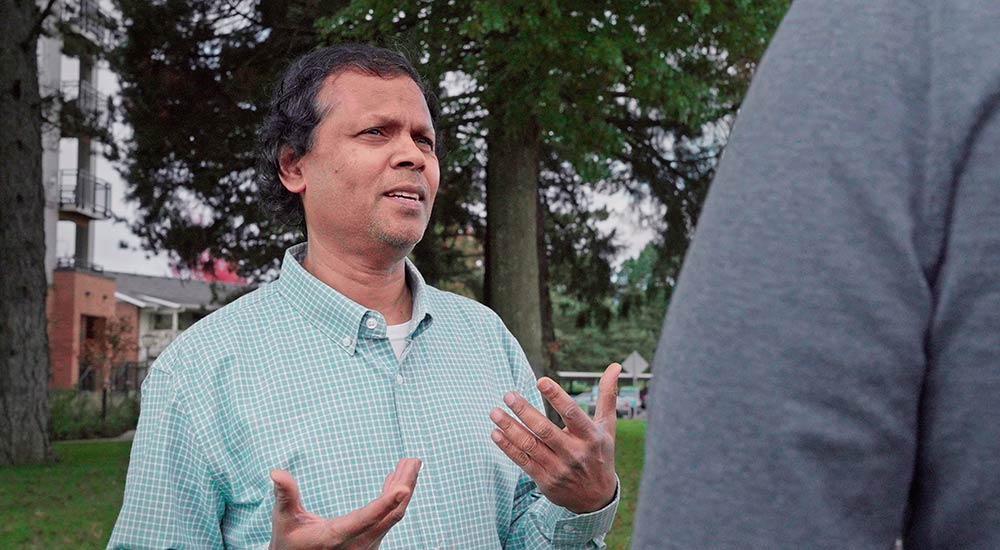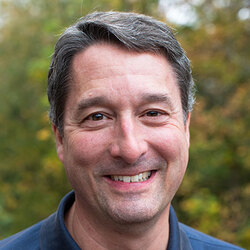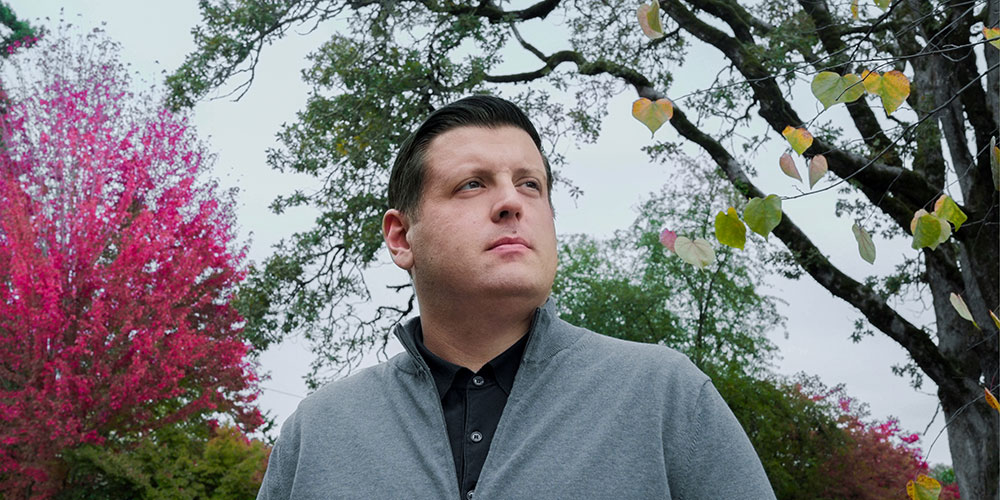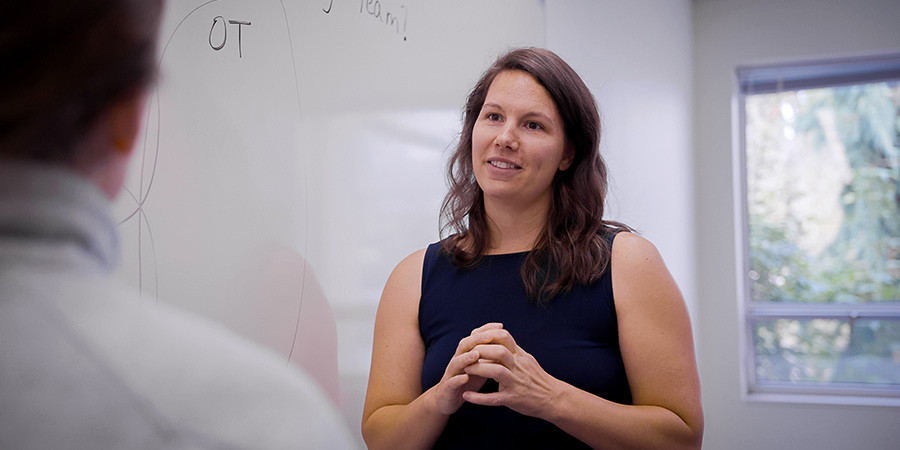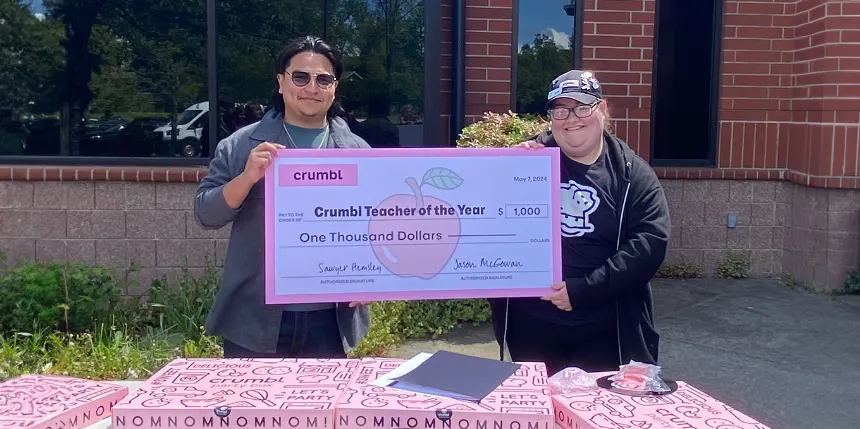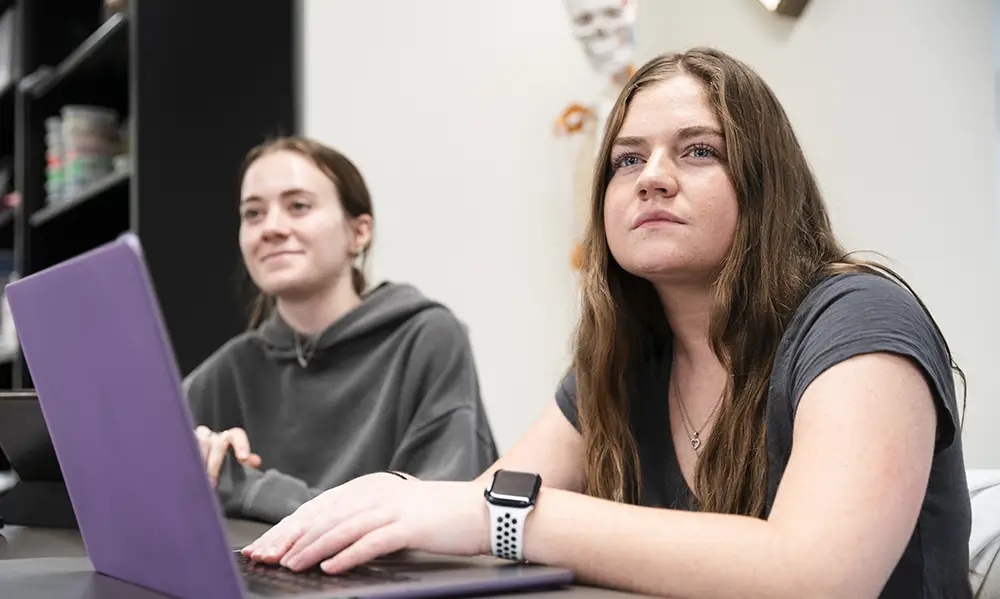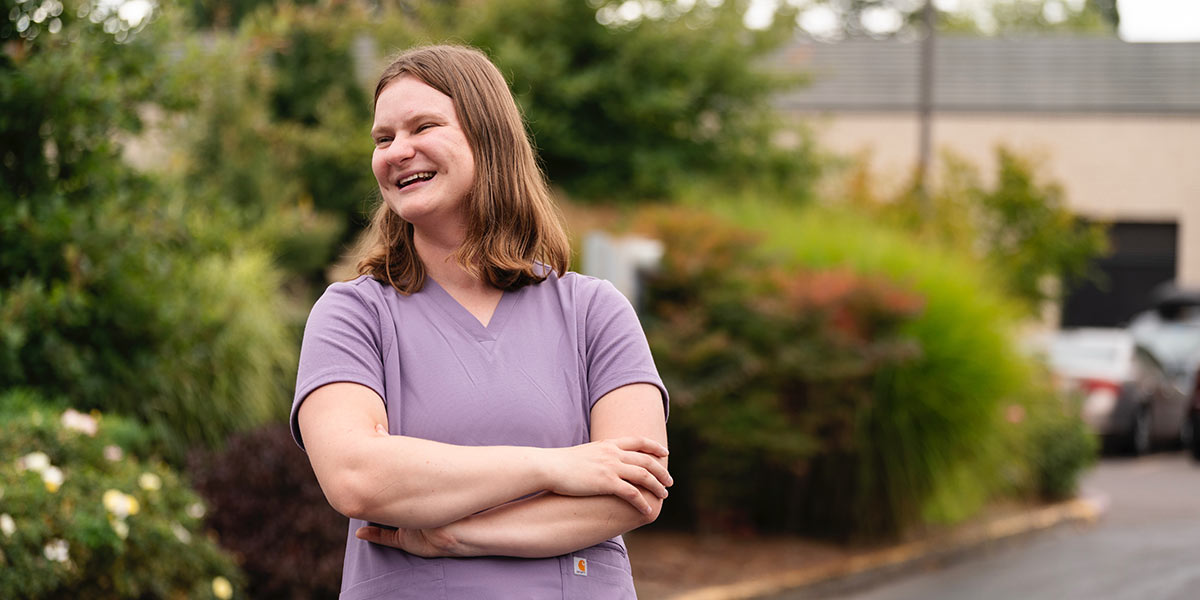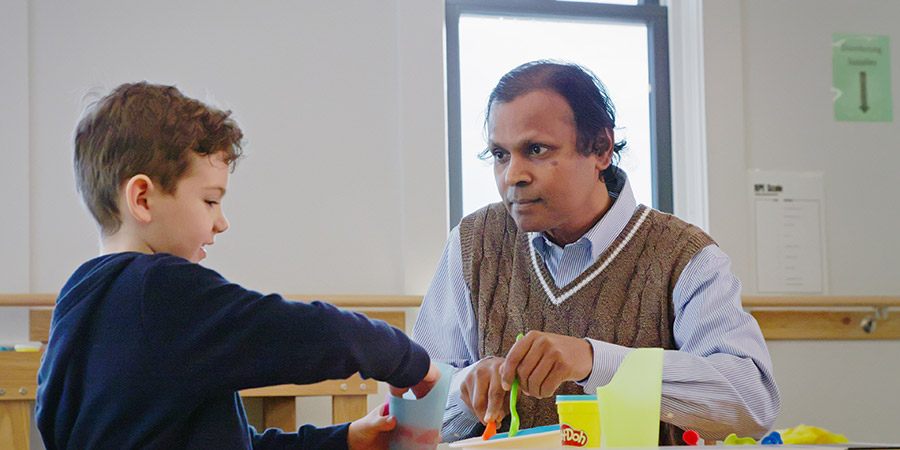
Occupational Therapy Faculty Spotlight: Stanley Paul
by Sean Patterson
The director of George Fox’s occupational therapy doctorate program opens up about how he got into the profession, his vision for the program, and the one question he asks himself to determine if you’re going to cut it as an OT.
What led you into the field of occupational therapy? How did you discover it?
I did my undergraduate schooling in India, at a Christian medical university, a service-oriented school like ours, and it offered medicine, nursing, physical therapy, OT, dental medicine, and other health-related fields. I had no idea what OT was, but one of my uncles was a nurse, and he suggested I look into it and job shadow an OT, since he knew I was curious about it. I did, and the person I shadowed said, “Hey, why don’t you apply?” That was it. That’s how it all got started. And once I got in, I knew this was what I wanted to do.
And yet, after coming to the U.S., you enrolled in med school. Why the change in direction?
After earning my master’s degree at the University of Buffalo and later my PhD at NYU, I got an offer to join the OT faculty at Western Michigan University, so I did. But I was always interested in service, and I got this idea that I wanted to earn my medical degree so I could serve internationally. One of my cousins was an OB-GYN who worked with Doctors Without Borders, and she suggested that I consider working with the organization, and after some soul searching and talking to a few doctors and nurses who had worked for Doctors Without Borders, I decided to go off to med school.
It took me a while – about two and a half years – to discover the MD path wasn’t for me, but I was already invested in it. I’d spent a lot of money, so I decided to stick it out and get the medical degree. I passed all my medical boards and got a three-year residency at the Atlanta Medical Center, but I’m thinking, “C’mon, man, you don’t want to do this for three years.’ I missed OT because it’s so hands-on and personal. I knew I had to go back to it.
So, why OT? What is it about the profession that serves as such a draw for you?
I always enjoyed being an OT, for one, because of the variety of settings you get to practice in. I’ve worked at the VA hospital, in different hospitals and acute care, in long-term care, in pediatrics, in homecare, in rehabilitation centers – a wide range of places. And you encounter patients recovering from a stroke, medical and neurological illnesses, injuries, fractures, multiple sclerosis – many different conditions.
Secondly, it’s the combination of service and the hands-on aspect of it. It’s very personal. You really get to know the people you are working with. That isn’t necessarily the case in a lot of medical professions. When I was an OT in a homecare setting, I would visit people in their own home, training them to learn/relearn their daily activities following a stroke, multiple sclerosis, a spinal cord injury, Parkinson’s disease or other medical conditions. Sometimes it involves teaching them to become independent in community mobility, shopping, and other higher-level daily activities. It’s really a “rehabilitation profession.” It wasn’t long before I had the epiphany that I don’t need to be a medical doctor to serve. I can continue to be an OT and serve.
Do you have a story that stands out that illustrates how OT transforms lives?
Here’s the thing: There isn’t one story that stands out. There are just too many stories to tell. I’ve worked with patients recovering from a traumatic brain injury and spinal cord injuries, and with quadriplegics who could barely move their arms and hands. I worked with them to set up their living area so they could be more independent, and set them up with power chairs and environmental modifications so they could get around and be more independent in their immediate surroundings.
For others, I was there to work on mastering basic life skills, like independence in feeding, dressing and personal hygiene. Besides the basic skills, you also help with advanced life skills such as doing laundry, cooking, cleaning, and taking care of minor household tasks. You don’t always hear how someone is doing after you’ve helped them, but every so often you do get that call. They tell you they are doing well, and they thank you for what you did for them. It’s good to stop and reflect on those moments, taking the time to think about the difference you’ve made in someone’s life. It’s a satisfying feeling.
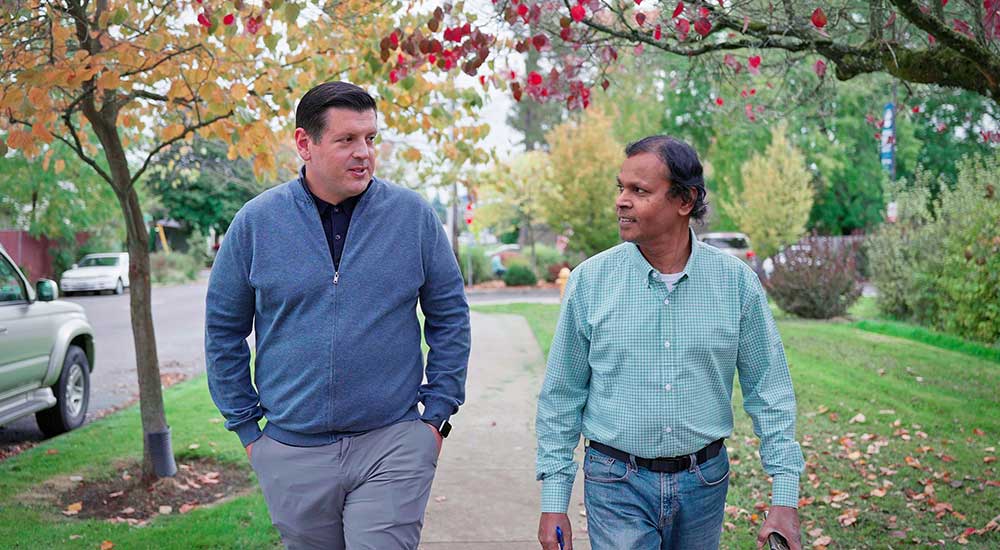
So tell me what drew you to George Fox?
One of the reasons I applied for this position is because it’s a Christian university and a mission-based institution. I worked in mission-based settings before, and there is definitely a difference between how we present ourselves and compose ourselves. Some of the places I worked in the past, it can be very cutthroat. I came here to George Fox, and it’s different. I could feel the difference. Another reason is the demonstrative emphasis on community service. I actually did get another job offer, but I turned it down because I wanted to come to George Fox.
What excites you most about your role as director of the program?
I was a program director before for a post-professional OT program, but being an OT for an already well-established program and starting a new program are totally different. You’re starting from scratch, so you’re leaving your fingerprints on it. It’s not yours, necessarily, but you have a strong influence on what the program will become.
So myself, fieldwork coordinator Dr. Kate Turner, and the doctoral capstone coordinator Dr. Trevor St. Clair are all working together. I’m not a lone wolf. I work with them. There is also the personal challenge aspect of it. When you start a program like this you have a huge responsibility and don’t want to fail, so that motivates you because so many others are counting on you.
I was convinced this was the right place to be after speaking with Dr. [Dave] Cimbora, [former] executive dean of the Wellness Enterprise, and Dr. [Daniel] Kang, executive dean of health sciences. What they shared with me really tipped the scale for me, as they spoke of the impact this will have in our community and beyond. It’s really quite an honor to be chosen for this position.
So what differentiates George Fox from other OT programs?
A lot of schools do service, but I think our service is unique because it's based on compassion and the desire to truly help others. Service is one of the main components of our vision, mission and philosophy. It’s part of our culture as a university. I’m also amazed at the camaraderie and teamwork atmosphere here. The people in the physical therapy and physician assistant programs have been very helpful, sharing resources and ideas. It’s not a competition – it’s more of a collaboration. They want to help me and they want to help the OT program. That is very honorable.
You don’t always see that in other places. I’ve worked at universities where, yes, we collaborated, but we also competed, so it's a different mindset. Everyone here has embraced me and wants to see the OT program succeed.
How do you see that teamwork mentality factoring into the OT program?
We're going to be doing interprofessional simulation, with OTs and PTs, and hopefully in the future also collaborate with the other programs within the Wellness Enterprise. This collaboration is so important because in the clinic you work with all these professions. So our OT students will be working with cases who also require a PT. Our students will learn what PTs do and how the professions differ. They will work with nurses and learn what they do.
This way, when they get to a clinic setting, they won’t be surprised with what they encounter. They will have had interprofessional simulation practice during their nearly three years with us. They will be well-versed in a wide range of disciplines when they graduate.
You mentioned the importance of the service component of the program. How do you see that playing out?
Our service will have both a local and global component. There is a huge shortage of OTs in Oregon, so opportunities abound in our own backyard. We will also be trying to establish contacts in Costa Rica. Our PA and nursing programs already have some contacts there. Our hope is that our students go there for a couple of weeks as part of a course, so it’s not just a freestanding thing. It would be embedded in a course. I’ve shared the idea of a Level 1 fieldwork in Costa Rica, and student applicants perk right up. They want to be a part of it.
There is a recognized shortage of health professionals in rural areas in both our state and the nation. Is that true of OTs as well?
Yes, there is definitely a shortage in certain areas. In others – places like New York, California, Illinois, Florida and Texas – there are a number of OT programs, so the demand is probably less. But in states like Oregon, the Dakotas, Alaska, Hawaii, there is a definite shortage. Currently there is only one other institution in the state offering an OT degree, so we have an amazing opportunity to make an impact on this region.
What happens is, the majority of people want to stay close to home, so they naturally stay in their area upon graduating. So it’s very easy for people to get a job if they’re willing to move. People say to me, ‘I’m looking for a job.’ I reply with, ‘Do you want to stay within 30 miles of your home, or are you willing to move?’ If they’re willing to move, finding a job won’t be a problem. We’re seeing a 15% growth every year in terms of the OT profession, and the need is great here in our own state.
Tell me about the demographic of students who have applied or shown interest so far.
Already last fall we had 70 applicants from 19 different states, which surprised me. And they come from all over – North Carolina, Virginia, Tennessee, Ohio, Texas, Colorado and Utah, and of course from Hawaii, Idaho, Oregon, Washington and California. I left out many more. What this tells me is something is attracting them to us – the main thing being, I believe, the fact we’re a Christian school and our mission and focus on serving the community seem to resonate with them.
This does present some challenges, because students will prefer to do their six-month rotations closer to home. So if someone comes from Tennessee, we need to help them find rotations in Tennessee. But I’m not complaining. It's a good problem to have. I can easily see us, five to 10 years down the road, having rotations set up in 30 different states.
What are your aspirations for the program? Where do you see it in three to five years, as far as the impact it's having locally and globally?
I’m certain we’ll establish a strong presence in the Northwest, as well as in California and Hawaii. And with the added service-learning component in Costa Rica, you never know. International service is very doable, and we’ll be open to inviting professors from other countries to come here and teach as visiting professors, giving our students a global perspective.
With that said, doing rotations abroad can be tricky in this post-COVID world. In the days I was going to school, you could do your rotations abroad for three months of the year without a lot of complications, but it’s getting harder because of the health insurance factor and other issues. We’ll just have to see how that plays out.
What qualities are you looking for in your OT students?
This sounds simple, but I’ll boil it down to this: Would I want to bring my grandmother to you as an OT? If I can say “yes” to that without reservation, that means you’re an OT that I can trust. That’s how I access you: Do I trust you with my family members? That’s the way I’ve always looked at it. That’s the standard.
